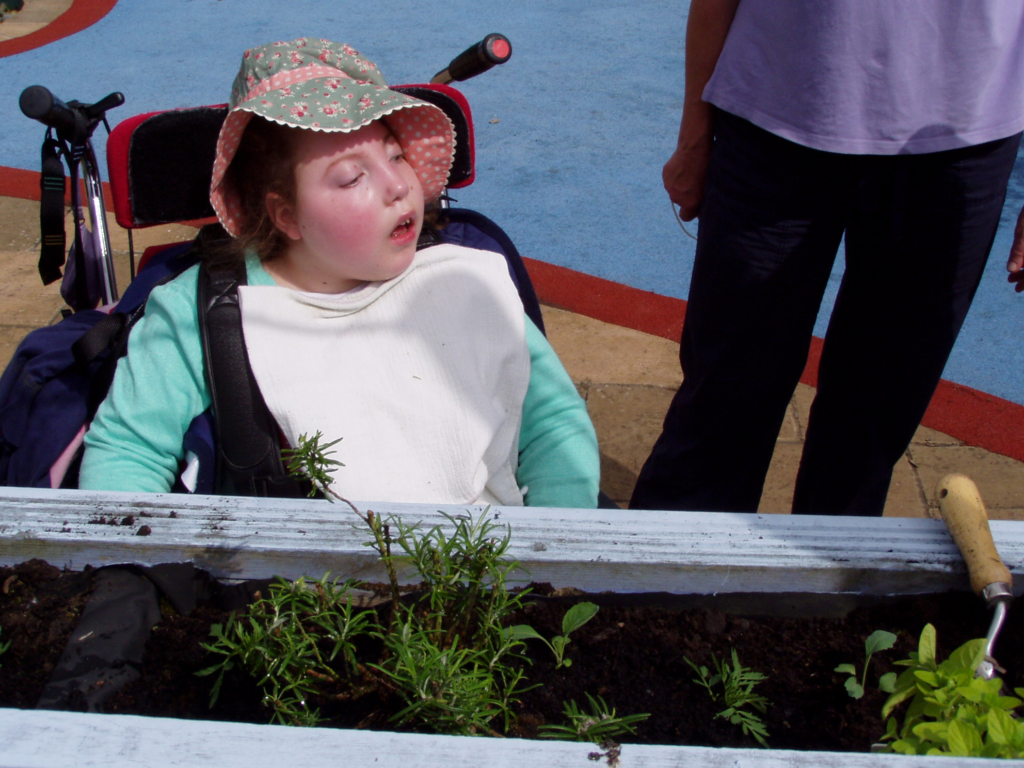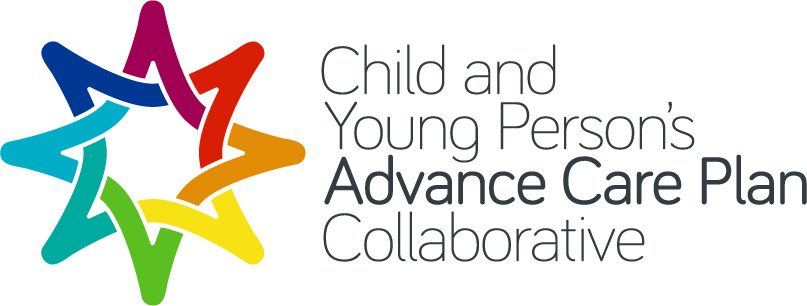Our story: Inspiration from Bea, whose life was too short.

The CYPACP was inspired by a child and her family. The aim was to create a document that was essentially child centred that would be easy to use in an emergency and covered all holistic aspects of the baby, child or young person and their family wherever they happened to be; home, school, hospice or hospital. Since then many families and young people have contributed to the document as it has progressed and we thank everyone of them.
On 28 March 1997, at just 28 weeks’ gestation Beatrice Lee, and her twin, Juliette, were born via emergency caesarean section, due to acute onset twin-to-twin transfusion syndrome. Beatrice was the recipient twin and suffered major brain damage: her parents were told to not expect her to survive. Against the odds, both Beatrice and her twin, Juliette survived this rough start in life; however, Beatrice’s brain damage left her with multiple and complex physical and health complications.
Her mother, Helen, her father, Mark, her twin sister, Juliette, now a paediatric nurse who qualified in 2018 , her older sister, Rosie and her much loved carer Liz, joined the CYPACP group during a meeting in August 2017. They described to the group that the chronic underlying stress of caring for a child with such complex needs and the fear that they would lose Bea, were ever present. The responsibility her parents felt for always having to remember every detail of her unique and numerous medical needs and to continually be an advocate for their daughter every time they met a new health professional was immense. The sheer exhaustion of having to repeat the story over and over again, ensuring no vital detail was forgotten, became almost overwhelming.
They had to watch the doctors and nurses try to work out if Bea was at the end of her life or not during each critical illness. However, the medical teams often skirted over these difficult issues resulting in no real decisions or plans being made or expressed out loud.
This was difficult for the whole family, but particularly her main carer, Mark, who explained that there was often a lack of honest discussions, which sometimes led to confrontations which he would prefer to avoid when a crisis was happening and emotions were already running high. Helen, who is always the pragmatist, said of course we understand it is difficult for clinicians; however it is a lot more difficult for families, therefore transparent honest discussions are needed. They feel that the healthcare professionals should know that, and that quite frankly it is a key part of their job.
For them, not knowing and not feeling part of the discussion was difficult. They know all families are different but they should all be given the opportunity to have their say. When asked by the group how early these discussions should be had, the resounding response from Mark, Helen, Rosie, Juliette and Liz was it is never too early. They wanted time to consider options while Bea was stable. On the spot decisions snatch away the chance to really think things through and this could lead to regrets.
Helen explained that the birth of the current document was inspired by just a few conversations about Bea’s medical care with Serena Cottrell, her close friend and godmother to her eldest daughter, who happened to be a paediatrician in the South Central region, during Christmas 2004 when Bea was 7 years old and had just had a bout of severe pneumonia requiring intensive care treatment.
Sadly Bea’s life was cut short at the age of nearly 13 years in March 2010. This was the same month that the document was launched for the whole of the South Central region, after several years of work from a number of dedicated doctors and nurses from hospices, community nursing teams and hospitals who gave up their free time for a cause they all felt passionate about; and it has become Bea’s legacy.
As Juliette, Bea’s twin, said ‘it is not just about the medical treatment; it is the little things such as knowing I am her twin and not just her sister, of knowing that Bea loved bright colour and brass band music, and that Christianity is a key part of our family life’. The fact that this could all go into one document would have ensured that the best and most personalised care could have been given to Bea. This care would have come from not just the nurses, doctors and other members of the multidisciplinary team who were so special to her in her local hospice, hospital and the community, but from healthcare professionals who had never met her before.
This document is like having the clinician who knew Bea best at the side of the bed in a strange emergency department or in a new intensive care unit.
Juliette is now a patient advocate on our team. She says when growing up and she discovered that other children didn’t have a handicapped twin, she felt very blessed. She was sorry for other children that they missed out on all the love that she had for Bea.
Dr Serena Cottrell Consultant in Paediatric Emergency Medicine Founder and Retiring CoChair with Dr Peter Mark Fortune of the CYPACP collaborative
Dr Peter-Marc Fortune Paediatric Intensive Care Consultant, Manchester Children’s Hospital and Chairman of the Paediatric Intensive Care Society
Dr Emily Harrop, previous Chair, Consultant in Paediatric Intensive Care at Helen & Douglas House Children’s Hospice, Oxford
Input and consent from Juliette, Helen, Mark and Rosie Lee
